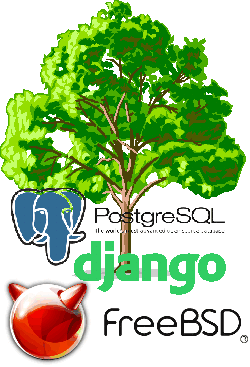Smart web development

Having the right information at your fingertips can offer your business a significant advantage in both timing and productivity.
Work Smarter! Your business is in your hands, put it at your fingertips and increase productivity by extending your business to yourself, your staff, customers and clients fingertips. Smartphones offer your businesses' products and services an immediacy where select information is both available when and where you want, as well as reducing many of the barriers to obtaining that information.

Every business is different so your business could benefit more than others.
By securely extending your business into your hands you can take a lead and grow your unique services the way you and your customers have come to expect.
We all live in the internet
Connecting Business and IT
Whether its more immediate responses to requests for information, easier order processing or more effective workflow. Putting your business at your fingertips is a great start to systems development. Making it easy to use and encouraging excellent service delivery plus offering background information/advice helps everyone become more productive.
Return on investment
![]()
Custom development that meets the needs of your organisation delivered to a high standard can be cheaper than customising an off the shelf product, plus the ongoing licence fees are often significantly less. Your business is more productive when your systems are closely aligned to your business goals, by working for your customers benefit, plus providing feedback ensuring it remains focussed.
Reliability
With a proven setup integrated into your current systems you quickly and securely gain the advantage of a solidly built system that can be managed using your own staff with the comfort of support if and when you need it.
Putting intelligence back into your business
Smartphones reduce the burden of getting at information and encourage engagement, for example a recent BBC News upgrade showed more engagement from mobile users than existing desktop users demonstrating that users engage more when it's at their fingertips.
Objectives
Helping set realistic objectives then following progress to ensure completion.
Internal marketing

Keeping service delivery at the heart is important in withstanding inevitable distractions. Intuitive, a joy to use and doesn't get in the way even better.
Sound tech choices
With so many choices, its important to make sound ones that will grow with your business. All systems have bugs; ensuring ongoing maintenance and support is essential to ensure bugs dont bite and any system grows and adapts with your goals.
Included
- All source code giving you the comfort of ownership;
- Automated testing helps ensure upgrades and improvements go smoothly;
- Secure so only the information you want is exposed;
- Extensible so it can grow with your business.
Application and infrastructure Choices
- Integrated and managed in-house;
- Hosted in the cloud and managed on your behalf.
Information sources
- Linking to existing information such as Microsoft SQL server or Active directory;
- Uploading off-line information such as via csv files;
- Manually updating information via a control panel.
According to a McKinsey study in 2011, small businesses that make use of the web are growing twice as fast as those that arent on the web.

Open Source
In 1676 Sir Isaac Newton acknowledged the debt he owed to other scientists: 'if I have seen further it is by standing on the shoulders of giants'.
- Interoperable open standards;
- Standard technologies reduce vendor lock-in;
- Ready supply of expertise.
Examples include:
Apache web server; Firefox web browser; PostgreSQL database; Thunderbird email client; Django web development framework; Twitter bootstrap for website designs across smartphones, tablets and desktops.
The UK government first set out its policy on the use of open source in 2004. This was restated in both 2009 and 2010. The UK Government ICT Strategy states that Where appropriate, government will procure open source solutions.
A good ecosystem works in harmony with nature
The government first set out its policy on the use of open source in 2004. This was restated in both 2009 and 2010. The UK Government ICT Strategy states that “Where appropriate, government will procure open source solutions”.
Open Source Options: Making use of the Cabinet Office guidance on Open Source Software
Infrastructure
FreeBSD server - the power to serve
FreeBSD is an operating system for a variety of platforms which focuses on features, speed, and stability. It is derived from BSD, the version of UNIX® developed at the University of California, Berkeley. It is developed and maintained by a large community.
Cutting edge features
FreeBSD offers advanced networking, performance, security and compatibility features today which are still missing in other operating systems, even some of the best commercial ones.
Powerful Internet solutions
FreeBSD makes an ideal Internet or Intranet server. It provides robust network services under the heaviest loads and uses memory efficiently to maintain good response times for thousands of simultaneous user processes.
Deployment choices include
- In-house virtual server (low cost);
- In-house real server (responsive and high throughput);
- Cloud virtual server (global reach, highest availability).

Django - the web framework for perfectionists with deadlines
Django is a high-level Python Web framework that encourages rapid development and clean, pragmatic design. Built by experienced developers, it takes care of much of the hassle of Web development, so you can focus on writing your app without needing to reinvent the wheel. Its free and open source.
Django makes it easier to build better Web apps more quickly and with less code.
Ridiculously fast: Django was designed to help developers take applications from concept to completion as quickly as possible.
Reassuringly secure: Django takes security seriously and helps developers avoid many common security mistakes.
Exceedingly scalable: Some of the busiest sites on the Web leverage Djangos ability to quickly and flexibly scale.

PostgreSQL is a powerful, open source object-relational database system. It has more than 15 years of active development and a proven architecture that has earned it a strong reputation for reliability, data integrity, and correctness. It runs on all major operating systems. It has native programming interfaces for C/C++, Java, .Net, Perl, Python, Ruby, Tcl, ODBC, among others, and exceptional documentation.
An enterprise class database, PostgreSQL boasts sophisticated features such as Multi-Version Concurrency Control (MVCC), point in time recovery, tablespaces, asynchronous replication, nested transactions (savepoints), online/hot backups, a sophisticated query planner/optimizer, and write ahead logging for fault tolerance. It supports international character sets, multibyte character encodings, Unicode, and it is locale-aware for sorting, case-sensitivity, and formatting. It is highly scalable both in the sheer quantity of data it can manage and in the number of concurrent users it can accommodate. There are active PostgreSQL systems in production environments that manage in excess of 4 terabytes of data.
